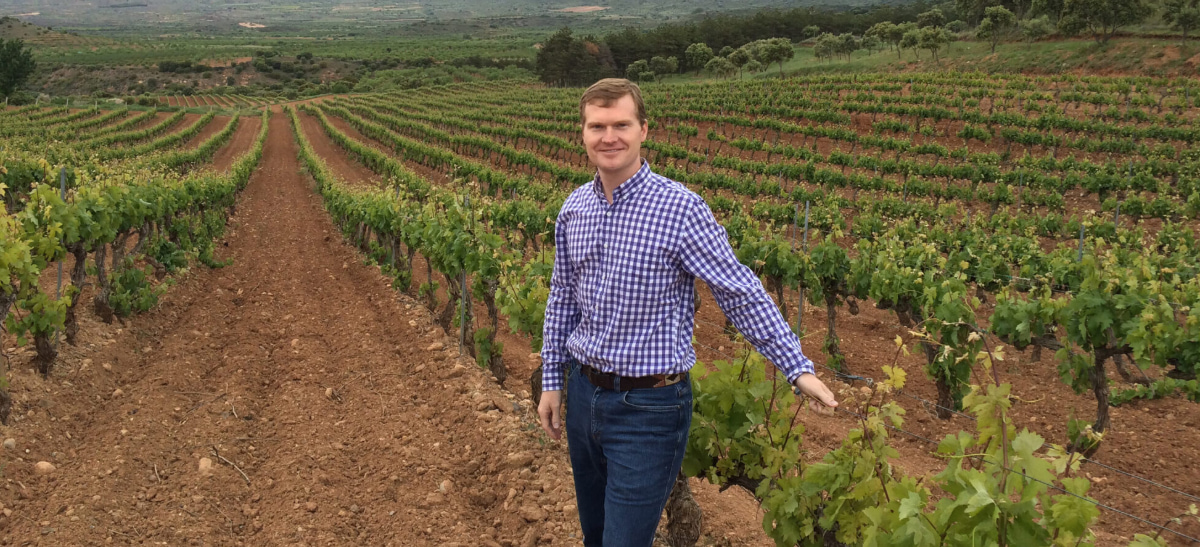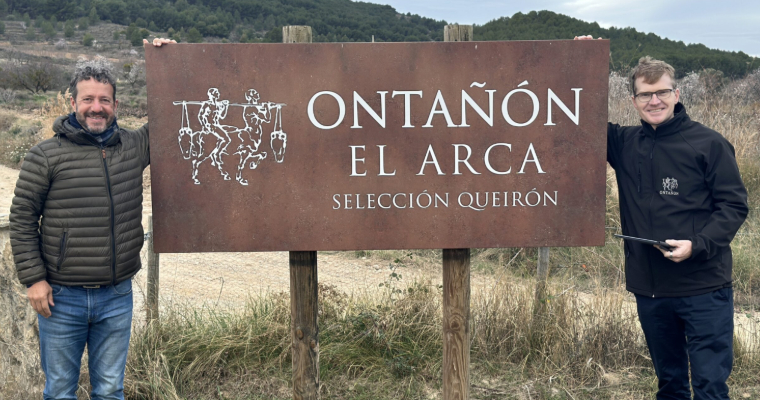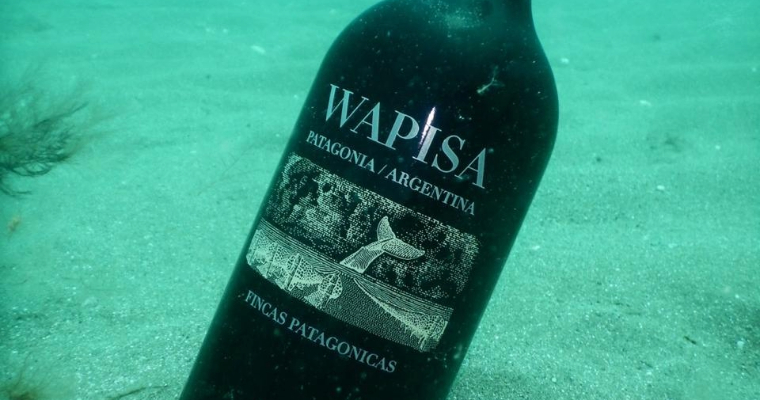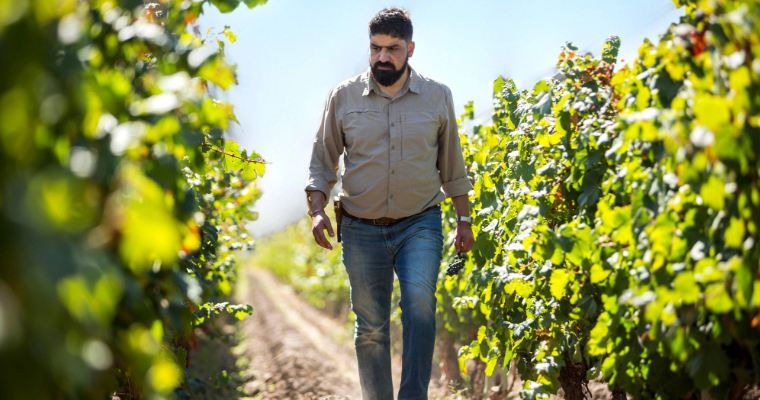Final
Deadline
April 16, 2026
Judging
Date
May 18, 2026
Winners
Announced
June 10, 2026

Matt Hedges, President of Vino del Sol, is a visionary who turned a passion for Argentine wine into a thriving business. What started in 2001 during his study abroad experience in Buenos Aires has grown into a successful venture after winning the prestigious Wake Forest Elevator Competition in 2004. Today, Vino del Sol is recognized as the Argentine Wine Specialist®, distributing premium wines across all 50 states. With a strong team and a commitment to quality, Matt’s leadership has shaped the company’s success. In this interview with the Sommeliers Choice Awards, he shares insights into Vino del Sol’s journey and the future of the wine industry.
[[relatedPurchasesItems-61]]
Vino del Sol recognized Argentina’s potential early on, establishing itself as a leader in the category over 20 years ago. Our focus has always been on bringing the best family-owned, estate-grown wineries to the U.S. market. We remain the only U.S. portfolio representing all of Argentina’s major terroirs—from Salta and Mendoza’s microclimates to Patagonia. Education is a key pillar of our strategy. We have taken over 700 wine professionals to Argentina and regularly host winemaker visits to deepen market understanding. Our diverse portfolio covers all major price points starting at $10, with over 1,000 wines earning 90+ ratings from top critics.
Also read: Argentina’s Old Vines: A Market Advantage Rooted in Purity
We maintain quality and identity by partnering exclusively with family-owned, estate-grown, and sustainably farmed wineries in the best regions of each country. Our close collaboration ensures that our market expertise complements their winemaking and viticultural craftsmanship, creating wines that consistently meet our high standards.
Our wineries showcase Argentina’s finest terroirs and IGs, spanning from San Pablo and La Consulta in the Uco Valley to Agrelo and Alto Agrelo in Luján de Cuyo, the Primera Zona, the high-altitude vineyards of Salta, and Patagonia’s only coastal winery. Each region reflects its unique terroir, with our winemaking and agronomy teams dedicated to crafting wines that authentically express their origins.

Image: Matt Hedges with Vino del Sol Co-Founder Alejandro Darago
Vino del Sol is committed to sustainability across its vineyards, production processes, and communities. We partner exclusively with wineries that uphold three key sustainability principles: social, economic, and environmental. In the vineyards, water conservation is a priority. Many wineries, like Zaha, rely solely on pure Andean mountain water, while others repurpose wastewater for irrigation. Organic farming methods include using compost made from grape waste, winter grasses to enrich the soil, and natural fertilizers like goat manure and grape lees. The arid climate of Mendoza minimizes pest issues, reducing the need for pesticides, while natural yeasts and minimal sulfur dioxide usage enhance terroir expression. Production facilities emphasize eco-friendly practices such as gravity-fed tanks, low-emission operations, and extensive water recovery systems. Tapiz even integrates llamas into its ecosystem, providing wool to Bolivian weavers. Beyond environmental efforts, our wineries actively support local communities—funding schools, aiding workers, and even contributing to whale conservation through Wapisa in Patagonia.
Also read: The Who’s Who of Argentine Wines in the USA: Top Importers, Restaurants, Merchants, and Distributors
Sustainability is integral to both the quality and marketability of our wines. By working exclusively with wineries that uphold social, economic, and environmental sustainability, we ensure that every step of production—from vineyard to bottle—enhances both the wine’s character and its long-term impact. Sustainable viticulture leads to healthier vineyards, producing grapes with greater purity and depth of flavor. Practices like minimal intervention, organic composting, and natural yeast fermentation contribute to wines that authentically express their terroir. Water conservation, gravity-fed tanks, and chemical-free farming further preserve the integrity of the fruit. Beyond the vineyard, our commitment to sustainability resonates with consumers and trade professionals seeking wines that align with their values. From Tapiz’s llamas supporting Bolivian weavers to Wapisa’s whale conservation efforts in Patagonia and Kura Selections’ use of oyster shell filtration and solar energy in Japan, our partners prioritize both environmental responsibility and community impact. These initiatives not only produce exceptional wines but also strengthen their appeal in an increasingly eco-conscious market.

Image: Wapisa Fincas Patagonicas
Innovation in viticulture and winemaking is key to enhancing both sustainability and quality across our portfolio. Wineries like Zaha from Mil Suelos have embraced techniques that optimize high-altitude mountain soils, which are naturally low in organic material—an advantage for producing high-quality, low-yield grapes. To enrich these soils, they incorporate organic matter through winter grasses that release nitrogen, natural compost from goat manure and grape lees, and tilled pruned material. Mendoza’s desert climate naturally limits pests, eliminating the need for pesticides, while careful irrigation management, along with shoot and cluster removal, reduces reliance on fungicides. When necessary, we use only copper sulfate, a natural and organic-approved fungicide. In vinification, we rely on natural yeasts to preserve each vineyard’s unique expression. Limited sulfur dioxide usage ensures a fresher, more balanced wine, while extensive lees movement during élevage promotes natural maturation. Our wineries also prioritize water conservation, treating and repurposing all water used in production for vineyard irrigation. Additionally, all organic by-products, including grape stems and lees, are composted and returned to the soil, creating a closed-loop system that reinforces both sustainability and wine quality.
U.S. wine consumers are increasingly prioritizing sustainability and mindful consumption, opting for higher-quality wines while drinking less. There's also a growing demand for no-alcohol options. To meet these evolving preferences, we've expanded our portfolio to include Osmosis, a line of high-quality, estate-grown, sustainably made low-alcohol wines. Additionally, we have introduced the Zolo Rosé, a non-alcohol wine, to cater to consumers seeking premium alternatives without alcohol.
Sommeliers and wine professionals play a crucial role in shaping demand for Argentine wines in markets like the U.S. by educating consumers and broadening their perception of the country's offerings. While Malbec remains Argentina’s flagship varietal, professionals must communicate its regional diversity—just as not all Napa Cabernets taste the same, Malbec expressions vary significantly from Salta to Patagonia. Additionally, Argentina produces outstanding Cabernet Sauvignon, Cabernet Franc, Torrontés, and more. By curating diverse selections and sharing their knowledge, sommeliers can elevate appreciation for Argentina’s rich and varied wine landscape.

Image: Winemaker Karim Mussi Saffie
We engage trade professionals through a combination of direct education and immersive experiences. Our winemakers frequently visit to interact with the market and provide hands-on education. Additionally, we organize educational trips, having already brought over 1,000 wine professionals to visit our winery partners globally. We also leverage social media to share our stories and connect with the industry, alongside traditional methods like point-of-sale materials at retail. These initiatives ensure that sommeliers, wine buyers, and retailers are well-informed and passionate advocates for our wines.
Over the past 20 years, the biggest challenges have been industry consolidation at the distributor level, the growing number of brands and wines flooding the market, and staying ahead of evolving consumer tastes and preferences. Despite these hurdles, we have consistently worked to adapt and maintain our leadership position in the market.
We are always exploring opportunities for expansion. Recently, we added our first European winery, Ontañón and Queirón, to our portfolio, as well as Tara, a winery from the Atacama Desert in Chile. We are highly selective in our partnerships, ensuring that each addition aligns with our commitment to quality and sustainability, so we don't add wineries every year.
In the next decade, we see the role of importers continuing to focus on authenticity and quality, with an increasing demand for sustainable practices and genuine terroir expression. At Vino del Sol, we will stay true to our core ethos of working with family-owned, sustainable wineries that represent the best of their regions. While we’ll stay aware of emerging trends, we aim to avoid chasing fleeting fads. Our goal is to remain a reliable source for the highest-quality wines, staying true to our commitment as "Your Trusted Source."
Header image sourced from Vino del Sol
Related Links
Argentina Unveiled: Discover Her Best-Kept Wine Secrets
Top Argentine Wine at Sommeliers Choice Awards 2025 to Receive Exclusive U.S. Importer Consultation
Enter your Wines now and get in front of top Sommeliers, Wine Directors, and On-Premise Wine Buyers of USA.
